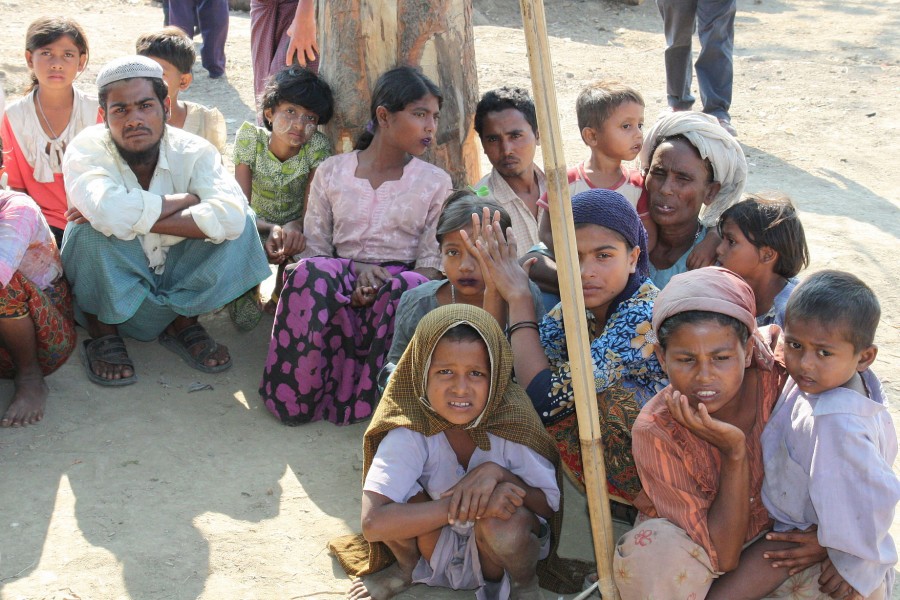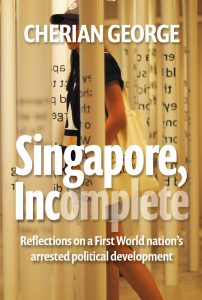CRISES OF CONSCIENCE
Text of remarks at the Singapore Institute of International Affairs’ Future50 event, 25 June 2015.
Last week, I attended the SEA Games football finals at the National Stadium, and a funny thing happened. During a half time, a friend came by to say hello. He hadn’t been sitting anywhere nearby so I was amazed that he had found me in the 50,000-seat arena.
He said it was thanks to the picture of the stadium that I had just posted on Facebook. Based on the perspective, he had figured out the angle from which it had been taken, and thus located where I must be sitting.

Thinking about that, it struck me that any future-gazing exercise is bound by similar perspectival geometry. We may think we are looking far into the distance, but when we present our predictions, we probably reveal as much about where we are in the world today than about any future state.
We like to talk of potential game changers, but usually what we mean by that is changes within the game we’re familiar with – for example, new funds from TV rights or new rules governing transfer spending within the game of soccer. It is much more difficult to anticipate an entirely different game, like when soccer players suddenly find themselves on a field of American football.
To foresee that order of change, we first need to figure out what exactly the game is that Singapore has been playing and excelling in thus far. (Not soccer, obviously.)
Few would disagree that we have been among the best in the world at riding the waves of global capitalism – keeping the city internationally competitive by maintaining an environment attractive to investments and wealth creation within a framework of open markets.
There is one troubling aspect of this game that tends to be overlooked – it has a moral vision that is still nation-based rather than universal. Most citizens of the First World who have a social conscience tend to feel an obligation to address injustice within their own national boundaries, but are much less likely to act on injustices across borders.
Thus, in Singapore, the national Gini coefficient is a politically live issue; but the much greater divide between rich and poor at the regional or global level barely figures in our national discourse. And the same is true of most rich countries.
This sort of moral balkanisation or protectionism is of course quite convenient for rich countries. Indeed, it could be an essential part of the Singapore success story. Because, the kinds of policies required to address gross injustices elsewhere could entail major sacrifices here.
It might be that this moral protectionism can’t go on indefinitely. It may get harder for conscience to turn a blind eye when victims of injustice show up as boat people or when we suddenly realise that our bargain basement shopping deals were manufactured by bonded labour.
Simon Tay’s preface in the Future50 report said that the project’s larger goal was “to encourage people in Singapore to develop interest, empathy, and responsibility, helping shape a better world as ‘global citizens’”.
My question is whether what this worthy moral vision is really compatible with the Singapore playbook. Or is it too radical, and even deeply seditious. How much does Singapore’s success, like that of other rich countries, instead depend on narrowing our moral vision to focus on our own country, and blinding ourselves to a world of extreme injustice?
On the positive side, we see some corporates talk about a triple bottom line that acknowledges the need to sustain not just shareholders, but also the environment, and social relations and human well-being.
What if, over the next 50 years, something like triple bottom line accounting became not just a fringe sport played by a few exceptional companies, but the new global norm, challenging the kind of amoral capitalist game that Singapore been playing and winning? That would seem to be a major advance in human civilisation; but what would that do to the prospects for Singapore as we know it?
Perhaps this is being too introspective and far too depressing for a jubilee year, but I do think that such issues of justice and morality shouldn’t be swept aside by a First World country contemplating its future.







Comments are closed.